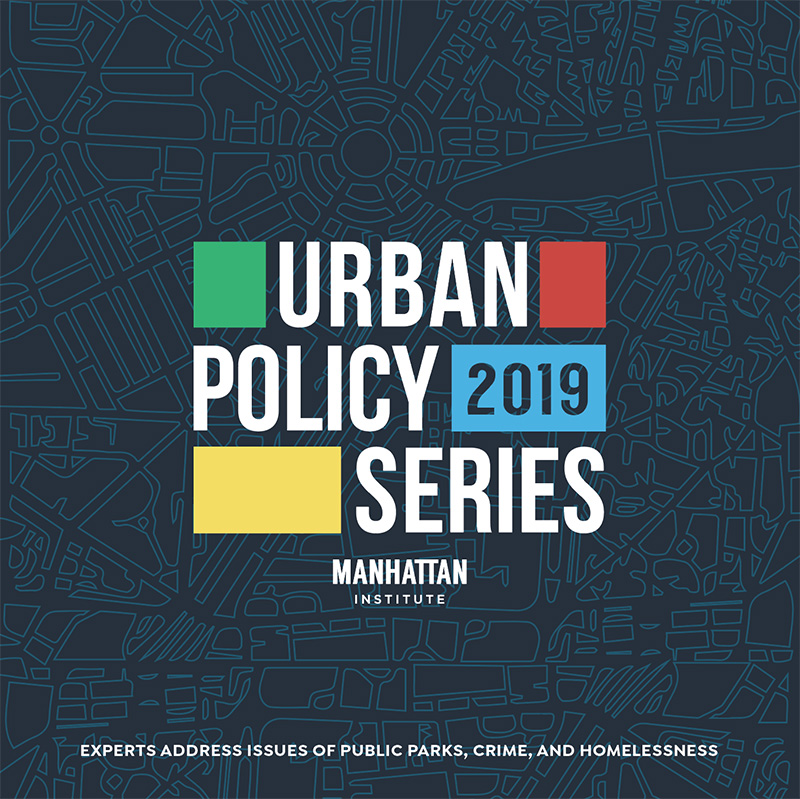Director, Publicity
mjacob@manhattan-institute.org
646-839-3359
About
Cities matter to the Manhattan Institute.
Since 2014, the Manhattan Institute has brought together public, private, and nonprofit leaders from around the country to shape the future of urban America. From housing to transportation and regulation to urban planning, we have developed nationally-relevant policy solutions grounded in unique local experiences.
Learn more about MI's work in U.S. cities by visiting our Urban Policy Series.
Chapters
- Chapter 1: Cleaning Up Vacant Lots Can Curb Urban Crime by John M. MacDonald and Charles C. Branas
- Chapter 2: How Private Dollars Can Manage Public Parks by Charles F. McElwee
- Chapter 3: Responses to Homelessness: The Law-Enforcement Dimension by Stephen Eide
Foreword
Michael Hendrix, Director, State and Local Policy, Manhattan Institute for Policy Research
The fate of cities depends on the quality of their public spaces. And those public spaces in turn depend on how well they serve the people of a city. Parks, streets, and sidewalks are not merely to be well-kempt physical places but should strengthen and shape the interactions that form our vital social infrastructure.
We once knew this: William H. Whyte argued in 1979 that the point of New York City’s Bryant Park should be to “promote the widest possible use and enjoyment by people.” Frederick Law Olmsted before him, as the designer of Central Park, argued that streets were an “outer park.”
Yet many cities today struggle to maintain their parks and streets and sidewalks. Public spaces are deteriorating for want of care, sensible management, and a variety of revenue sources. Vacant lots are breeding disorder and crime in distressed cities. Homelessness as an experience is harmful to the broader city as well as to homeless individuals themselves.
In our latest Urban Policy Series, Manhattan Institute had authors speak to the state of America’s public spaces, with the goal of equipping urban leaders with the ideas and tools they need to lead. The authors presented their ideas and conferred with local experts from across the country—including cities in California, Missouri, and Wisconsin—to learn how to practically implement them.
Charles Branas draw on their years-long study of the Philadelphia LandCare program to show how cleaning and greening vacant lots can dramatically deter crime. Since crime is highly concentrated in neighborhoods, small, targeted investments in remediating blighted properties can have large-scale benefits across an entire city.
Stephen Eide, a Manhattan Institute senior fellow, shows how law enforcement can address homelessness hand-in-hand with social services. Maintaining quality of life in public spaces and ensuring public health are among the most essential functions of local government; without this, the costs to society and those most in need, including the severely mentally ill, may grow intolerable.
Charles McElwee, the assistant editor of City Journal, distills the lessons from Bryant Park into principles for leveraging private dollars for public spaces. All too many parks nationwide are underfunded, underused, and underappreciated. McElwee shows how avoiding public support and implementing better management can help parks be beautiful and self-sustaining for generations to come.
Download PDF
Download full version of PDF here.
